By Neal B. Jeppson, San Antonio Center for Young Adults
Lessons Learned
I just finished teaching my last child to ride a bike. It’s been something that I’ve looked forward to and dreaded all at the same time. Not only does learning how to ride a bike test the relationship between the learner and the teacher; it also magnifies human weakness on both the part of the rider, as well as the one doing the teaching. So why do we insist on inflicting these types of experiences on ourselves and others? We do it because after all of the tear filled moments, the scrapes have healed and fears are overcome, a reward that can rarely be found in other experiences awaits for both teacher and the learner.
So many lessons are gained on a little bike, rolling on hard concrete, with a young parent and a semi-trusting child. For me, it has been a classroom of why human weakness is so critical for me and my family’s development in life. It has become what I call, The Parable of the Invisible Bike Coach.
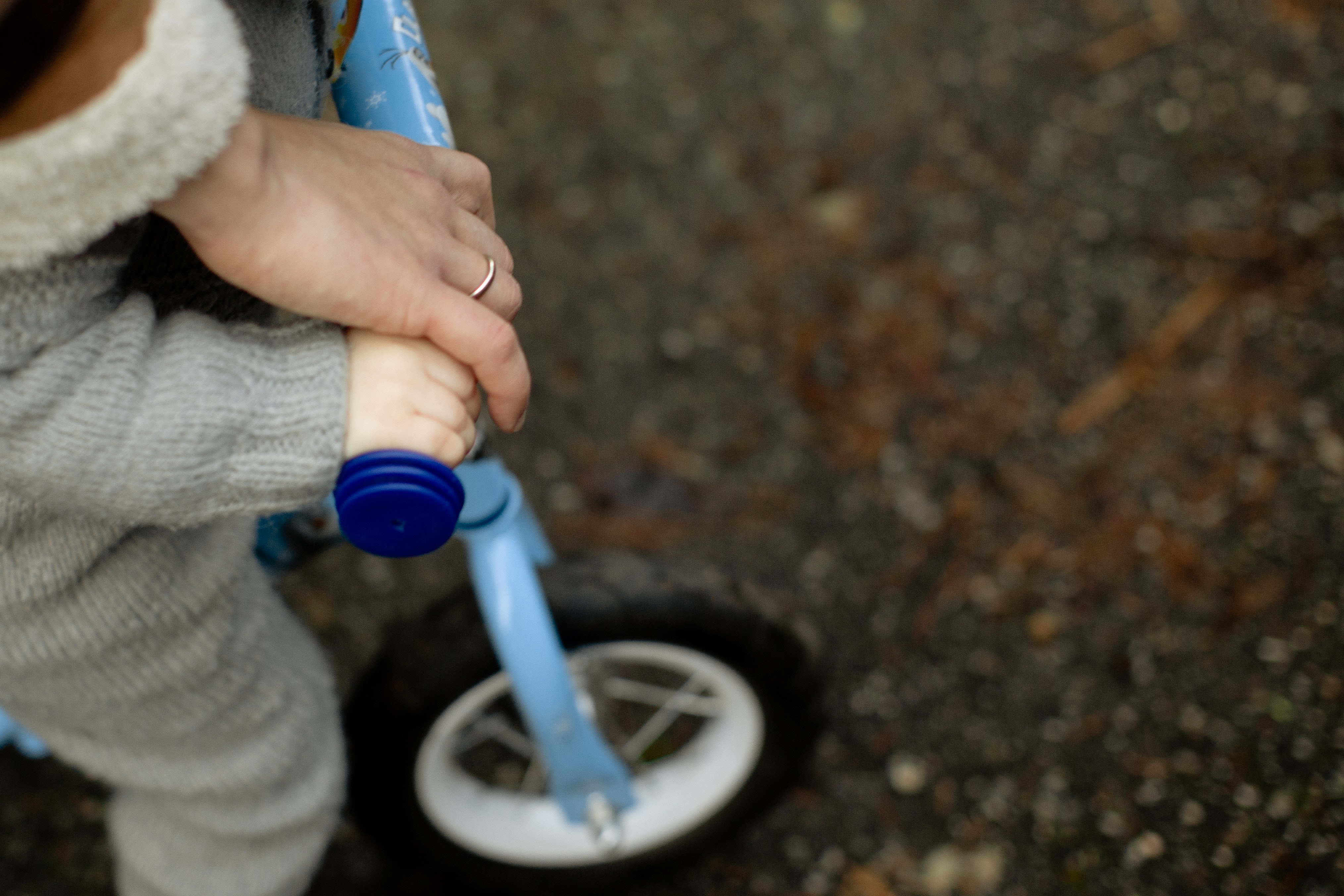
The Invisible Bike Coach
Imagine what it would be like if we didn’t experience weakness in this life. It would be like learning to ride a bike with the help of an invisible bike coach. In this scenario, the rider would simply mount up and never sense any imbalance. The coach, of course, would still be there, holding the bike steady but the rider would have no idea that any one else was helping them along.
“This is easy!” the rider exclaims as they begin peddling. As they continue, the invisible bike coach walks silently behind the bike, fingertips pressing into the seat, steadying the rider. Sometimes the invisible bike coach may even run behind the bike, gently pushing it to make it go faster.
Gradually the rider starts to get the hang of it and the invisible bike coach notices moments when he is able to lessen his grip on the bike seat. The rider, unaware of any additional support or even the need for help, acknowledges the ease of the challenge and recognizes that they are just “really good at this bike-riding thing.” Soon the invisible bike coach lets go completely and the rider heads off into the sunset.
In this scenario, there’s no falling, no scrapes and no frustration. Only the joy of riding. Sounds good, right?
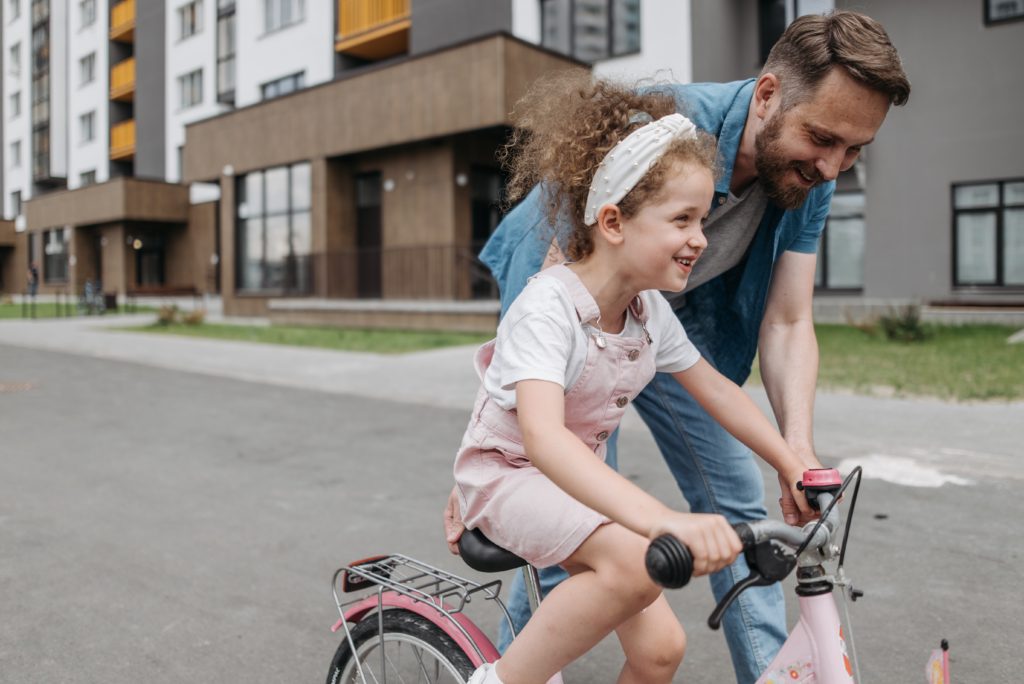
Strength Found in Weakness
When learning to ride a bike, there are lessons that can only be learned if the rider understands this principle: Weakness presents an opportunity for growth. This lesson is more important than just how to properly bandage a scraped knee after falling off a bike. It’s perhaps even more important than developing grit from having to pick oneself up after a fall. Recognizing weakness allows the rider to determine need. A need for help that they are unable to provide for themselves. Let’s consider what other opportunities for growth the rider could have if they were aware of the coach’s presence and his assistance.
First, when the rider is aware that someone is assisting them, they recognize that they can’t do it on their own yet. They need help. When they fall, both they and the coach work together to get back on the bike and try again. The coach encourages, supports, and builds trust with them.
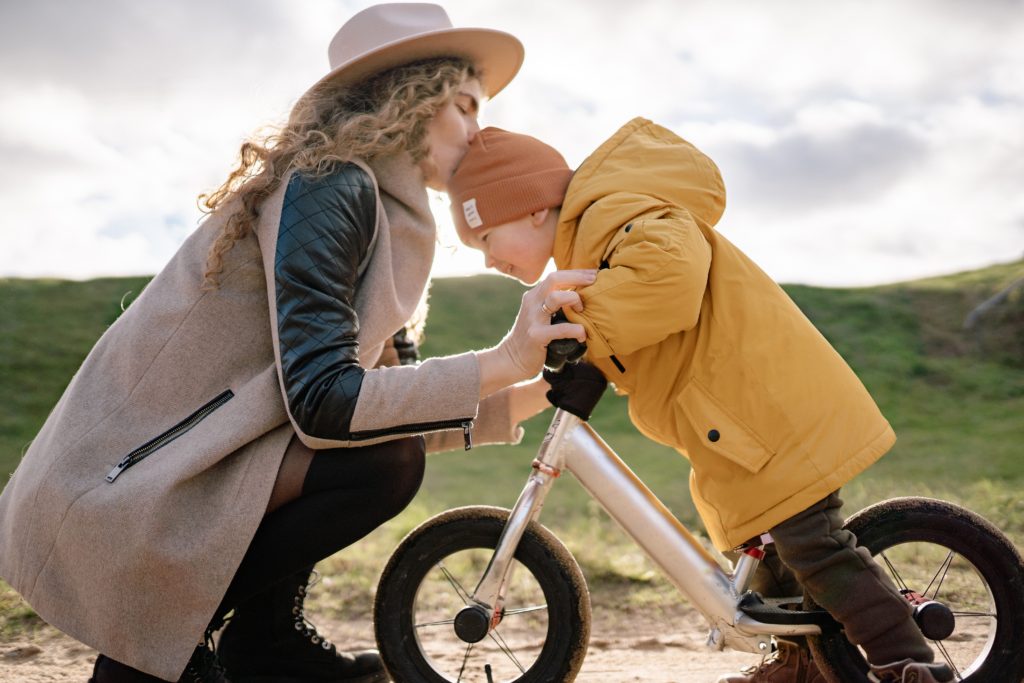
The rider may continue to be apprehensive because of the possibility of falling again. After all, experience has taught them that falling hurts. But they’ve also had moments when they’ve felt success. Drawing upon those positive experiences builds determination. They also know that the coach is willing, consistent in his encouragement and ever present. Consequently the rider is always willing to take the risk and get back up again.
Mutual Triumph
Together the rider and the coach celebrate little milestones and an eventual mutual triumph. With practice, the rider will one day take white knuckled flight down a driveway, feeling the wind through their hair and acquiring what seems like mach 10 speed achieved all by themselves. But before they can have this crowning experience, they must acknowledge these truths:
- Weakness exists to instill a need for a coach. Consequently, weakness doesn’t make them “bad” or that they are somehow broken or less than others.
- The coach has strength, skills and knowledge that the rider needs. He is strong, ever present and is willing to share his strength.
- The thrill of independent bike riding can only be experienced if the rider is willing to put their full trust in the coach completely.
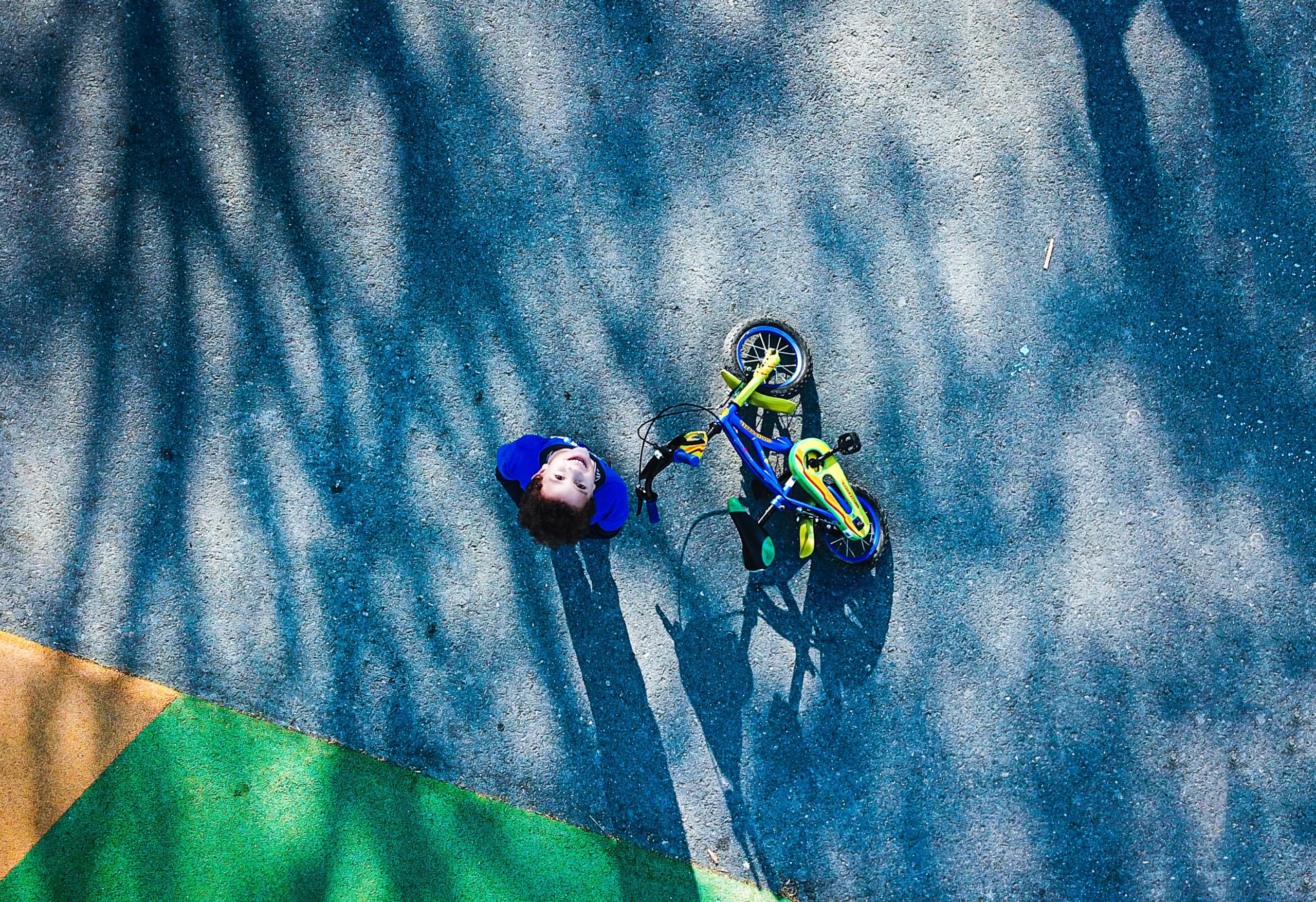
The Choice
There are many choices the rider must make as they navigate the challenges of learning to ride a bike. They may compare their own efforts to more experienced riders, feel sorry for themselves and never actually try. They may also begin to believe that they’re incapable of riding a bike; concluding that they’re a “bad person” or somehow broken. The list could go on. In addition, applying an incorrect understanding of who the coach is, the role he plays and what benefit he is in their experience also limits the rider.
The rider’s ability to progress relies heavily on whether or not they choose to buy in to any or all of these untruths. If they do they’ll miss out on the exhilaration of being able to ride away for the first time. More importantly they’d miss the incomparable joy and mutual triumph of the return, falling into the coach’s arms after what seemed impossible at the start. The coach will feel overjoyed with gratitude that he was trusted, and the new bike rider will feel so thankful they were willing to trust him. Consequently, their relationship will grow, and never be the same again.
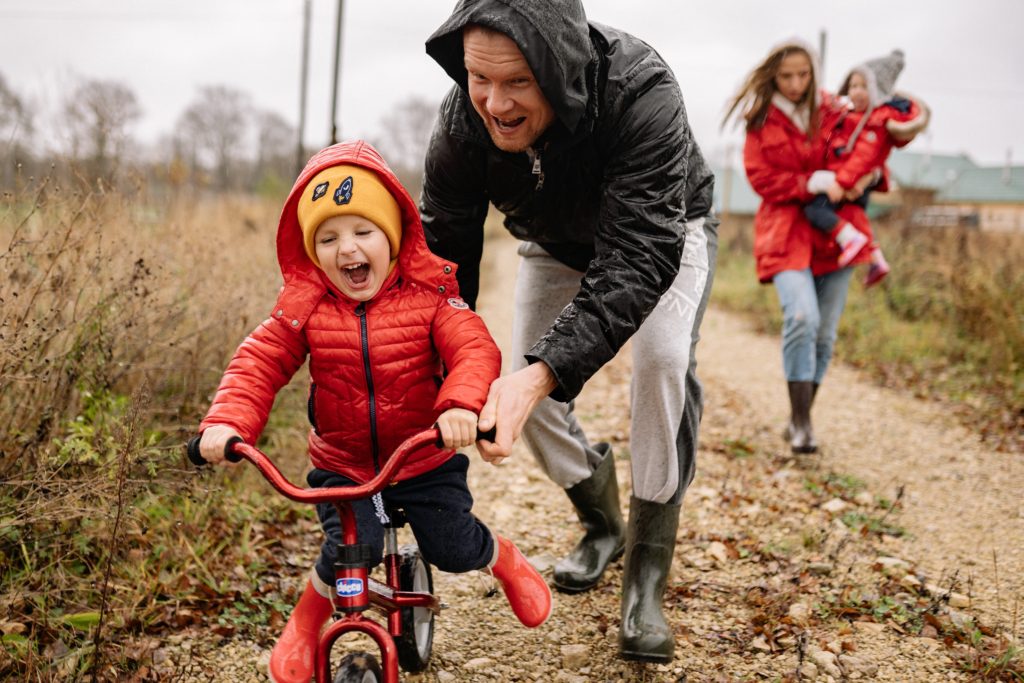
Trust, Believe and Effort
Upon reflecting on the process of growth and learning how to ride a bike, the rider would recognize the essential relationship between themselves and the not-so invisible bike coach. Rather than chalking this accomplishment up to the ease of the challenge, natural talent or pure dumb luck, they’d say, “I accomplished learning to ride a bike because I partnered with my coach!”
Because the rider was willing to trust, believe and make an honest effort, they were able to accomplish their goal. The application of this correct belief would support them throughout their lives as they navigate other challenges.
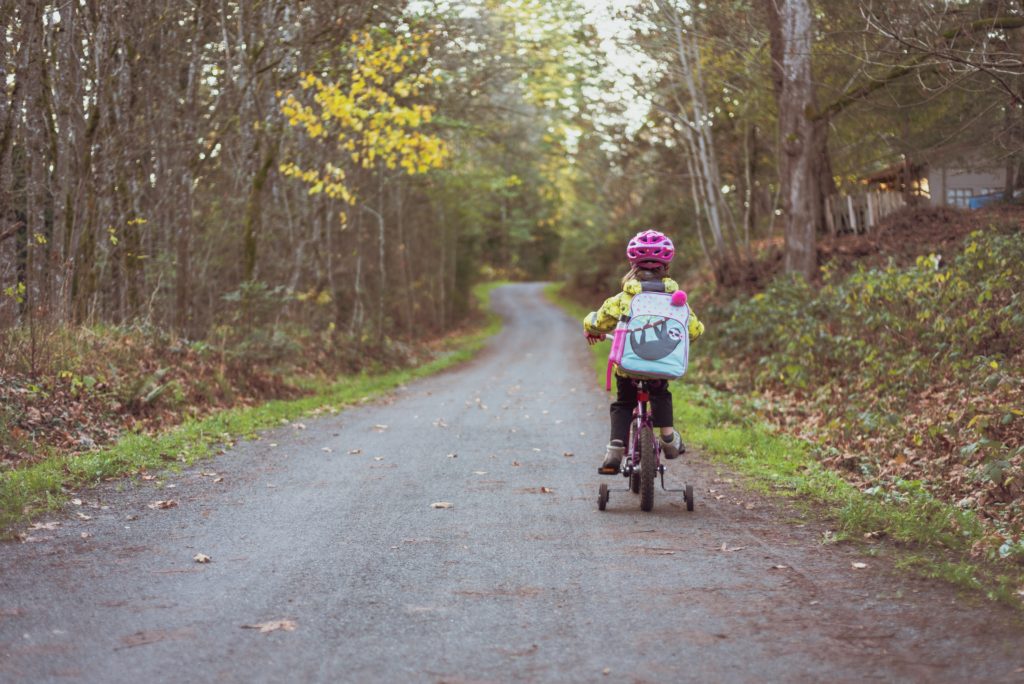
The Lesson
When we choose to go about life independently and alone, we misunderstand the attributes of God and the difference He can make in our lives. He made us weak so that we could learn to rely on Him. When we come to know Jesus Christ, we come to know his capacity and attributes. He makes it possible to fulfill the injunction found in Matthew 5:48, “Be ye therefore perfect!” Simply put, if we don’t comprehend the character of God, we will be very confused about our own worth, potential, and personal destiny.
Jeffrey R. Holland taught, “God doesn’t care nearly as much about where you have been as He does about where you are and, with His help, where you are willing to go.” (1)
Make the choice to get back up, to try again even when you’ve fallen countless times. Choose to keep trying even if you don’t think things will ever change. “When we’re tempted to give up, we must remember God is long-suffering, change is a process, and repentance is a pattern in our lives.” (2) When we feel discouraged He can rest assured that He is present, ready to apply loving support in the most individual ways.
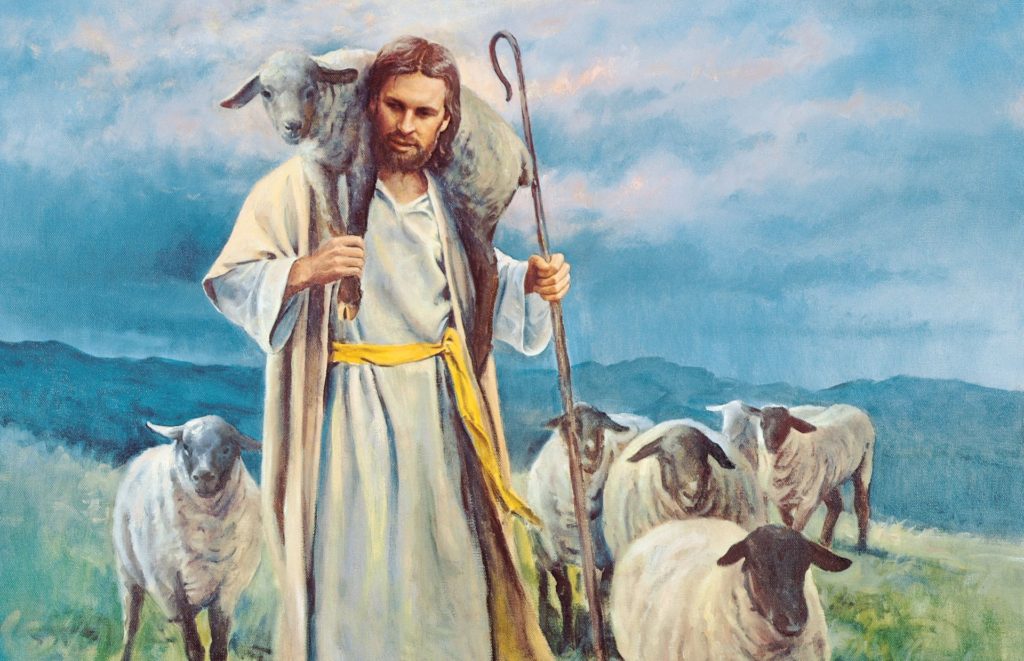
Our challenges teach us to trust the Coach … and He is the greatest of all Coaches! Through these experiences we will come to know and love Him far more because of the blessing of weakness; For in our weakness, He makes us strong. (3)